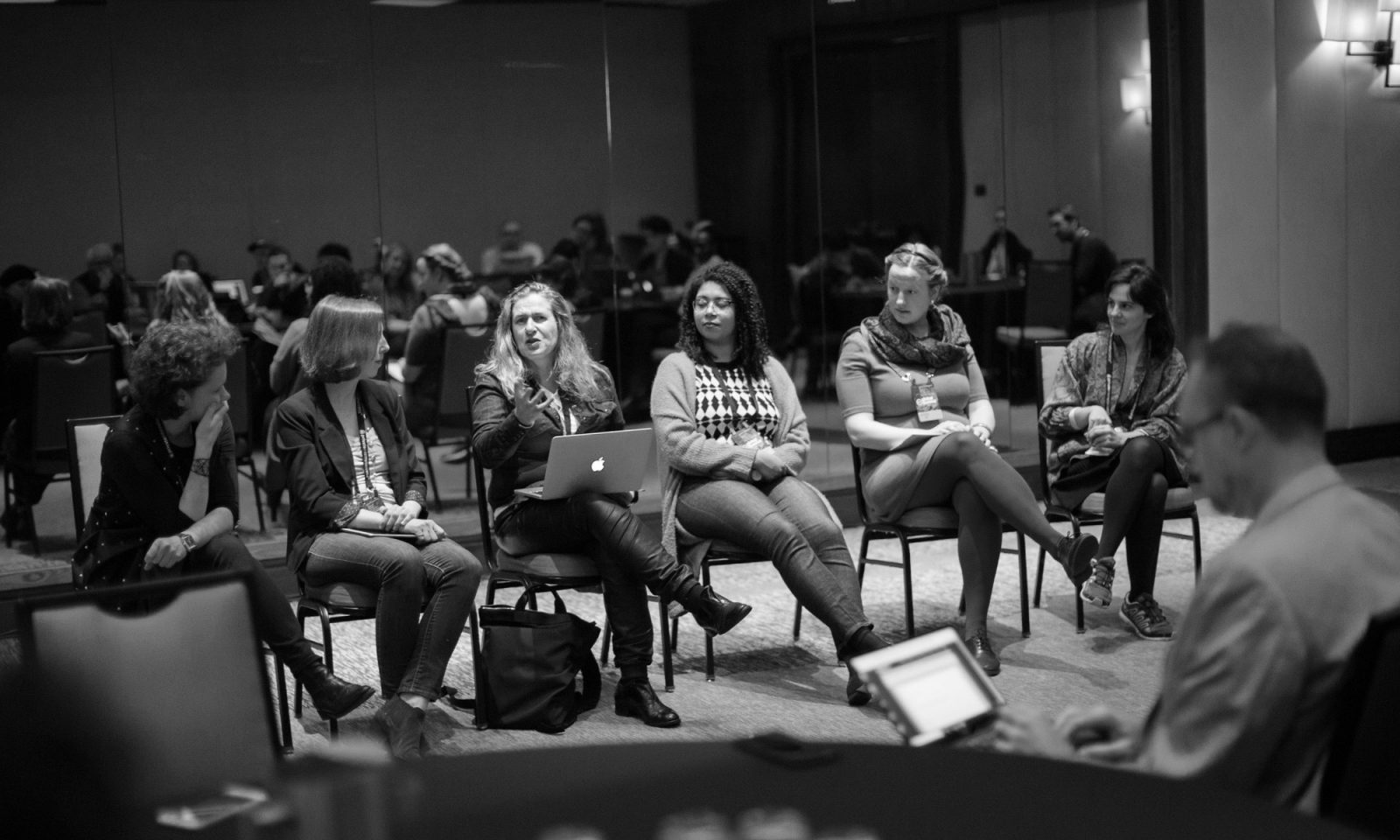Creative Commons Global Summit
From 13 to 15 April, when spring was already warming up Europe, IPI’s dr. Maja Bogataj Jančič and Saša Krajnc attended the pinnacle of annual Creative Commons events – the CC Global Summit in icy, yet still posh Toronto. For those not familiar with the organisation – Creative Commons provides free, easy-to-use copyright licenses to give the public permission to use creative work, but also acts as an organized network for advocacy and initiatives related to free sharing of copyrighted material, open resources and open internet.
For an entire weekend “the Commoners” gathered for workshops, discussions, seminars, and plenaries about the future of CC, the network and the community of sharing. The event brought together 192 speakers and 435 attendees from 64 countries, many more followed the event through the stream and social feed. The Summit, held at the Delta hotel, opened every morning with breakfast for Summit newbies and then continued throughout the day with a packed program of lectures and workshops in various areas, connected with the open internet, copyright, education, open access, new technologies and issues related to the present and future of the CC network.
The IPI team enthusiastically participated in copyright law sessions and actively contributed to them, as dr. Maja Bogataj Jančič was one of the hosts and speakers of the “Fixing Copyright to Meet the Needs of Educators” session, addressing the current issues of educators faced with copyright limitations when conveying knowledge and discussing in depth the education exception, proposed in the new EU Directive on copyright in the Digital Single Market.
The participants, otherwise scattered in numerous smaller sessions, gathered every day for the presentations of keynote speakers. Wikipedia Executive Director Katherine Maher’s discussion asserted that free knowledge is inherently radical and called to resist enclosures of knowledge and learning. MIT Library Director Chris Bourg’s wide-ranging keynote “Open as in Dangerous” discussed the need to embrace the assertion that free knowledge is a political act. The packed room for Lawrence Lessig’s talk “From Unlocking Free Culture to Reviving American Democracy” listened as he outlined his career from copyright to representational democracy. Professor Ruth Okediji, Jr. Professor of Law at Harvard University and Co-Director of the Berkman-Klein Center, gave the final, resonant keynote of the Summit, focusing on her work for a more just international copyright system and discussed her work on the Marrakesh Treaty, a copyright exception to support individuals with visual impairments.
By the end of the weekend, the IPI team was thrilled to have met old friends, made new ones, gained fresh drive to advocate for a better and balanced EU copyright and continue our work in the spirit of openness and sharing.
If you want to find out more about CC or want to apply for next years’ Global Summit, follow this link.
The Grand Board of the European Union Intellectual Property Office (EUIPO) finally ruled that the figurative sign ‘COVIDIOT’ cannot be registered as an EU trademark.
The 4th Open Knowledge Day took place on Tuesday 17 October 2023, with an accompanying workshop on 18 October 2023. This year it was organised by the Open Data and Intellectual Property Institute (ODIPI) and supported by Knowledge Rights 21 (KR21).
We invite you to the fourth Open Knowledge Day and the workshop, which will take place this year within the framework of the programme and with the support of Knowledge Rights 21. The event will bring together experts from different European countries to discuss two topics: the first part will deal with the legal basis for data analytics, which is a key part of machine learning and related artificial intelligence, and the general exception for research. In the second part, open science in theory and practice will be presented both in Slovenia and in some Western Balkan countries. Representatives of research and educational institutions from Slovenia and the Western Balkan countries, as well as interested members of the public, are invited to attend.
Dr. Maja Bogataj Jančič, a renowned expert in copyright law, has joined the Berkman Klein Center for Internet & Society at Harvard University, where she will serve as an affiliate researcher for the next two years.





